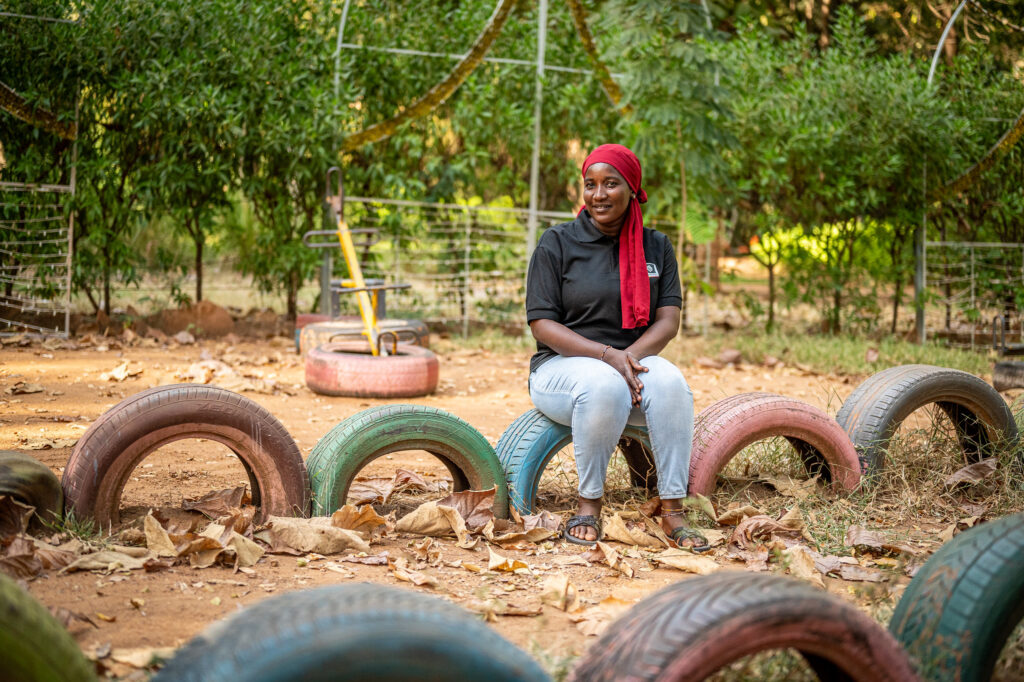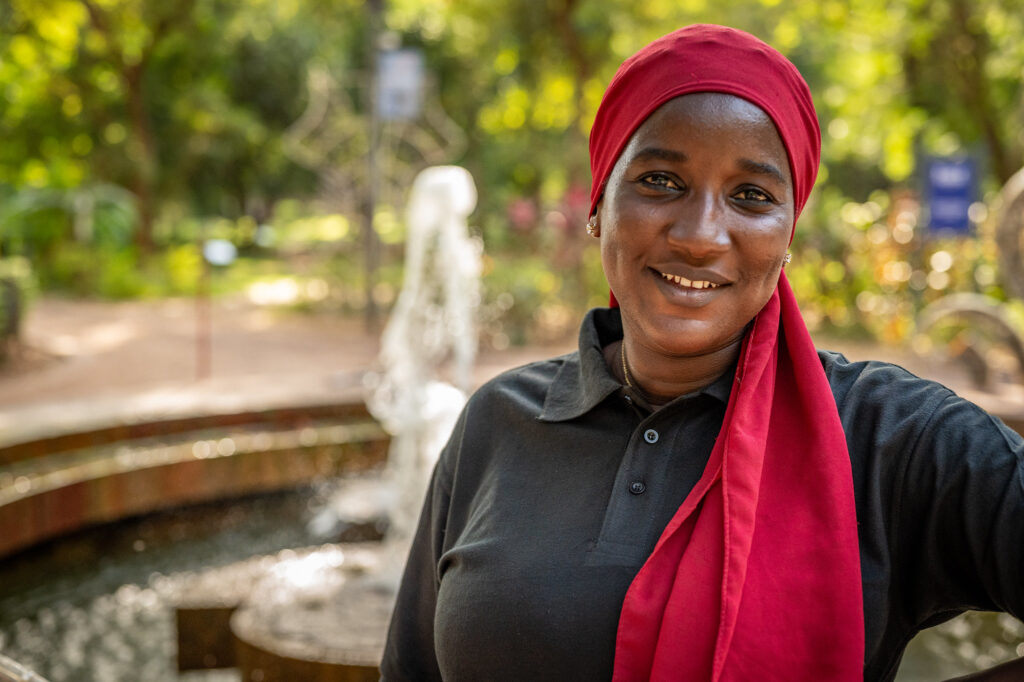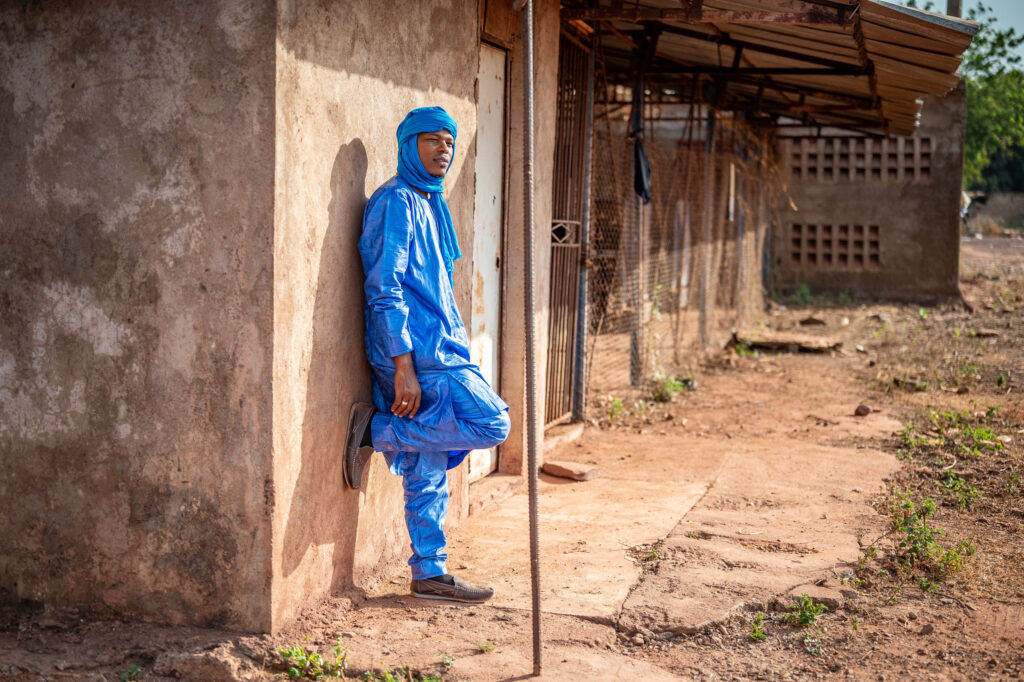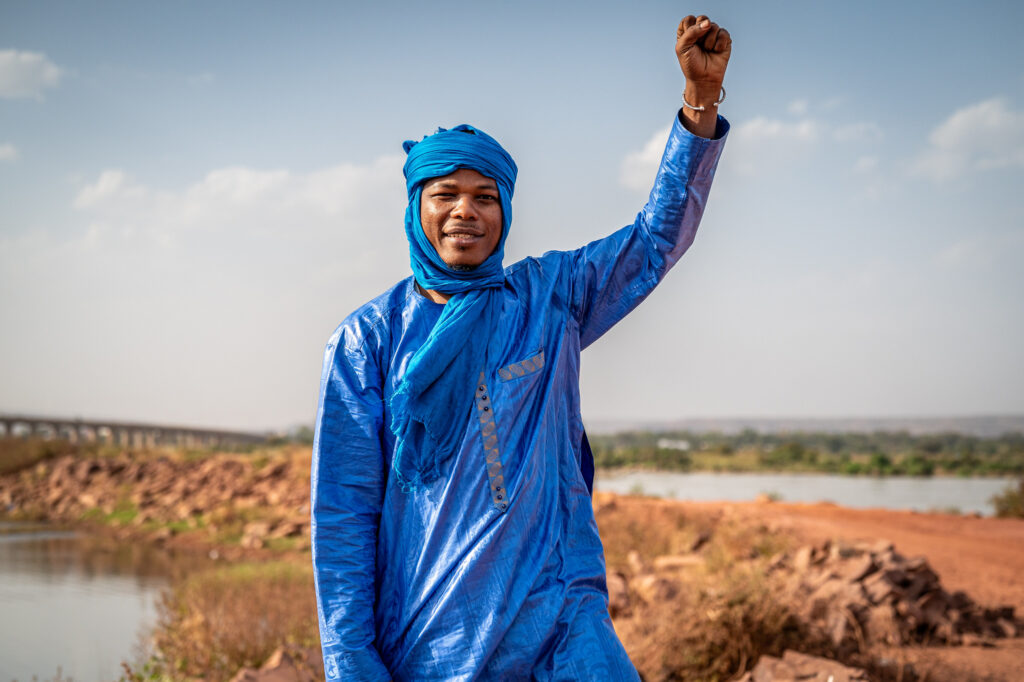People under 25 make up 60% of Mali’s population. That’s why Cordaid, in consortium with SNV, Oxfam Novib and la Fondation V4T, strategically focuses on inclusive and effective youth participation in Mali via the PGLR+ programme: Programme de Gouvernance Locale Redevable / Accountable Local Governance Programme.

The PGLR+ programme aims to restore and reinforce the social contract between Mali’s local public authorities and youth. Implemented by a consortium of four Dutch NGOs across 240 municipalities in Mali’s Tombouctou, Gao/Ménaka, Mopti and Ségou regions, the programme is currently in its second phase, creating lasting impact for communities and citizens alike.
Watch this video about Cordaid’s work in Mali:
Conflict regions
We spoke with two participants in the PGLR+ programme — Fanta Zara Bah (27 years old) from Ségou and Mohamed Mahmoud Elhadj (26 years old) from Tombouctou. As trained programme participants, both Fanta and Mohamed contribute to strengthening trust and cooperation between local authorities and young people in their communities. Yet, this is no easy feat considering that both of their communities have suffered from years of conflict between rebel groups, Malian government troops, as well as foreign intervention and terrorists.
They say the city is mysterious. This is so true. You need to live in Tombouctou to understand it.
As a region, Tombouctou is politically and geographically isolated from the rest of Mali. “Some people say nothing gets out, nothing comes in. They say the city is mysterious. This is so true. You need to live in Tombouctou to understand it”, says Mohamed.
The situation in the north is the most complex in the context of Mali’s ongoing crisis, given the separatist movement. In 2012, the Azawad movement declared independence from the Malian government in the south, a claim that continues to fuel Mali’s conflict to this day.
As for Ségou, it became the front line of the conflict a year later as many Malians were pushed from the north further south. This crisis stoked social and governance issues for communities in both Tombouctou and Ségou, and it persists over a decade later as the testing backdrop against which Fanta, Mohamed and other young people like them facilitate and inspire greater citizen engagement.
Awareness-raising, from taxes to prenatal care
Fanta Zara Bah is a youth leader and focal point for the PGLR+ programme in the town of Ségou, which lies right on the bank of the Niger River some 140 miles northeast of Mali’s capital, Bamako. Speaking from Bamako’s lush and winding botanical gardens, Fanta described her training with PGLR+ and life back in Ségou.

The PGLR+ programme taught Fanta and her peers a lot, especially during the training, about their citizenship rights and duties. She points out that in Ségou, people do not regularly pay taxes. Still, after training, the youth leaders were able to educate taxpayers in Ségou about how their tax money can fund community development.
We know now that the involvement of youth in the business of a community is crucial for its development.
They were also trained on the importance of prenatal consultations, which a significant number of women in Ségou do not attend due to financial restraints or a lack of trust in hospitals and doctors. So Fanta and her peers embarked on another awareness-raising campaign around the city, reaching out to men and women alike to encourage greater attendance.
They get the word out in other ways, too: “We also participate in radio shows”, says Fanta, who affirms that thanks to the PGLR+ training, “we know now that the involvement of youth in the business of a community is crucial for its development.” Indeed, the success of their awareness-raising in Ségou was evident. Three months after the prenatal campaign, Fanta followed up with the health centres and was thrilled to hear of a big change: the number of women visiting for a prenatal consultation had increased.
More transparency, more leadership, more impact
When unrest erupted in Tombouctou, Mohamed left to study in Bamako. Despite the many tempting career opportunities the capital had to offer him, he turned all of them down for his hometown. “My objective was always to return to Tombouctou. Many young people leave. I returned. I’m very proud of my city and of what I do.”

After graduating from university in 2017, Mohamed returned to Tombouctou to bring his energy and new education to young people. Once back, he joined the PGLR+ programme and was appointed as one of its young leaders. Although many young people leave Tombouctou, Mohamed estimates that those who stay or return are behind almost 90% of all community actions there in the form of organisations and associations. He believes that they bring greater levels of transparency, leadership, and impact.
When there are confrontations between different communities living in Tombouctou (between fishermen and farmers, for example), the young leaders intervene and resolve issues peacefully. This level of youth impact is partly possible due to the rigorous training that young people can receive via PGLR+. From deconstructing hate speech to exploring concepts of civil society, citizenship and democracy, the PGLR+ training courses are free for participants and allow young people to develop the necessary skills to advance communal harmony.
The youth are the lungs of Tombouctou’s development
Given the conflicts that can break out between communities in Tombouctou, Mohamed puts his PGLR+ training into practice by organising football tournaments to unite young people, strengthen social cohesion, and break the conflict status quo. The appetite for football among young people is so strong in Tombouctou that Mohamed is adamant that the region desperately needs stadiums. He also has plenty more ideas for investment in infrastructure: “We could also use conference rooms and a renovation of the university, so more young people can come and study there.”
From the sidelines to the centre field
Young people who are trained with leadership skills are equipped to act and achieve great things for their community. Mohamed’s conviction is this: “Youth are the lungs of Tombouctou’s development.” As for Fanta, her advice for other young leaders and change-makers is to be persistent in their actions even when met with resistance: “We must get involved in all matters of the community, even if they try to sideline us.”
Our communities and our countries will not develop without us.
By strategically focusing on inclusive youth participation in local governance mechanisms, tangible and sustainable change can be seen in communities where the PGLR+ programme is implemented. As Fanta summarises, the future of good governance depends on youth participation: “Our communities and our countries will not develop without us.”

As PGLR+ participants, Mohamed and Fanta believe in a better future for Mali with young people at the helm. “For my city, and Mali in general, I wish for peace, reconciliation, and social cohesion. And I hope the refugees can return to their homes,” says Mohamed.
Written by Bryony Harris.
Images: Mickael Franci / Cordaid.
